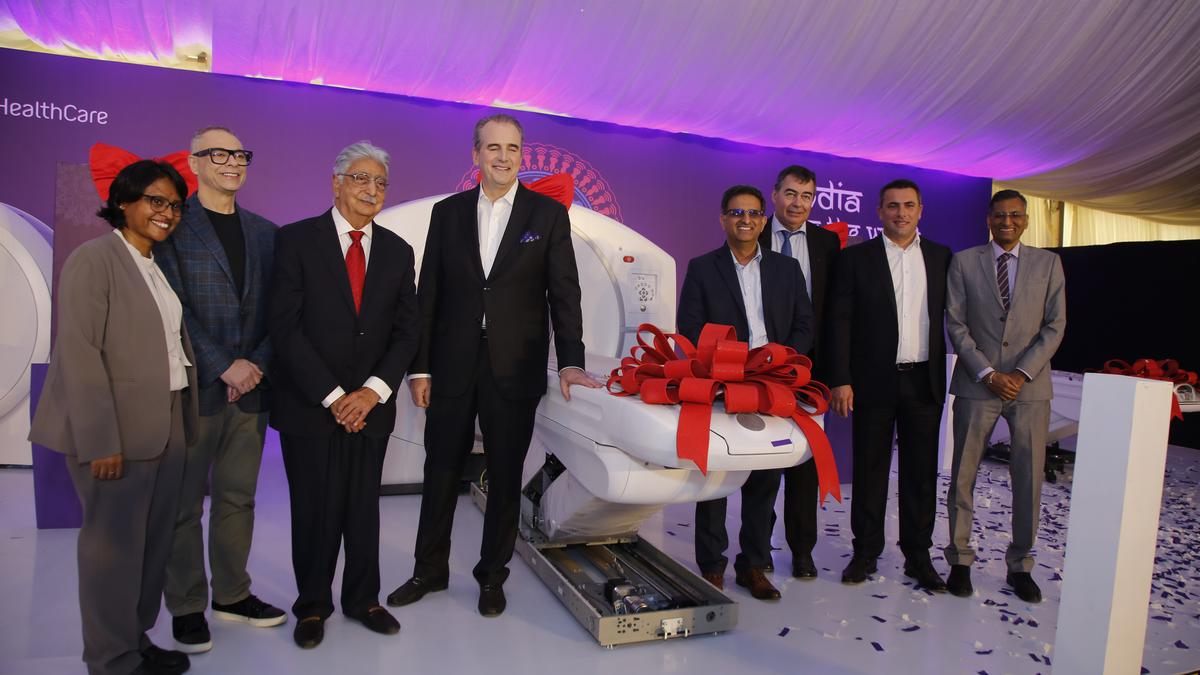Wipro An important turning point in the development of healthcare and technology in India has been reached with GE Healthcare’s recent announcement of a substantial investment exceeding Rs 8,000 crore (roughly $1 billion) in manufacturing and local research and development (R&D) over the next five years. This investment highlights GE Healthcare’s commitment to advancing healthcare innovation, fostering local manufacturing capabilities, and aiding in India’s emergence as a global hub for medical technology. It was led by the company’s president and CEO, Peter J. Arduini, during his visit to India.
This program has advanced greatly because to the collaboration between Wipro Enterprises and GE Precision Healthcare, USA. Wipro GE Healthcare seeks to transform the manufacturing of medical devices and diagnostic equipment by focusing on improving manufacturing skills and growing R&D infrastructure, which would ultimately benefit patients and healthcare providers globally.
Principal Aspects of the Investment
Product Expansion and Export: Growing the product lines, such as the PET/CT scanner Discover IQ made in India, is one of the main goals of this project. With its sophisticated imaging capabilities, this scanner will now be marketed to 15 nations, demonstrating India’s leadership in medical technology innovation.
Local Production for International Markets: Thanks to Wipro GE Healthcare’s investment, a number of goods, including MR breast coils and CT scanners, may be produced locally for export. This action not only strengthens India’s manufacturing industry but also establishes the nation as a trustworthy source of top-notch medical equipment internationally.
Expansion of the R&D Center: The investment will also help Wipro GE Healthcare, the largest R&D center outside of the US, expand its Bengaluru location. This facility, which employs thousands of highly qualified individuals, is essential to the advancement of innovation and product development in the field of healthcare technology.
Creating a Sturdy Supplier Ecosystem in India: A large amount of the investment will go toward creating a stable supplier ecosystem in India. Arduini underlined how crucial it is to source more components locally in order to lessen reliance on imports. In addition to encouraging independence, strengthening the supplier ecosystem also improves manufacturing processes’ efficacy and cost-effectiveness.
Industry Resilience and International Cooperation: Arduini emphasized the necessity for diverse and resilient supply chains while highlighting the lessons learnt from the COVID-19 pandemic. Through partnerships with regional vendors and increased production capacity in India, Wipro GE Healthcare hopes to strengthen industry resilience and contribute to the stability of the global healthcare supply chain.
Employment and Skill Development: More jobs in manufacturing, research and development, and supply chain management are anticipated to be created as a result of the investment, both directly and indirectly. The healthcare technology industry will see economic growth and skill development as a result of this inflow of job possibilities.
Reducing Costs and Increasing Access: It is anticipated that as local production and sourcing grow, medical device costs will fall, allowing a larger population to have more affordability and accessibility to healthcare technologies. This is in line with India’s goals of encouraging medical innovation and guaranteeing access to healthcare for all.
The Function of Government Initiatives and Technology Associations:
The chairmanship of Peter J. Arduini at AdvaMed, the largest medical technology association globally, highlights the cooperative endeavors of leading industry players to propel innovation, adherence to regulations, and moral conduct within the medical technology domain. AdvaMed’s support of industry best practices and standards raises the standing and dependability of medical devices throughout the world.
In addition, government-backed programs like “Make in India” have been essential in drawing in capital, developing homegrown manufacturing, and positioning India as a top location for international companies. The ‘Make in India’ effort aims to boost domestic production and increase India’s global competitiveness in multiple industries, including healthcare technology. Wipro GE Healthcare’s significant investment is in line with these goals.
The Effect on Patient Outcomes and Healthcare Delivery:
The impact of Wipro GE Healthcare’s investment goes beyond the domain of technology and production. The ability to provide healthcare both domestically and internationally is improved by the availability of cutting-edge medical gadgets made in India that meet international standards. Modern equipment is available to healthcare professionals, improving patient outcomes, treatment efficacy, and diagnostic accuracy.
Furthermore, the growth of research and development capacities encourages ongoing innovation, which opens the door for the creation of cutting-edge medical solutions designed to meet changing healthcare needs. Improved healthcare services, early disease identification, tailored treatment plans, and eventually a healthier populace are the results of this.
Opportunities and Difficulties Ahead:
The Wipro GE Healthcare venture presents both potential and difficulties for the Indian healthcare technology industry, as it ushers in a new era of growth and innovation. Key problems that necessitate strategic planning and collaboration include addressing supply chain vulnerabilities, ensuring regulatory compliance, promoting talent development, and sustaining product quality standards.
However, the investment also offers chances for regional vendors, experts, and would-be business owners to network with world-class business executives, push technological boundaries, and take part in the expansion of the healthcare technology ecosystem.
Looking Ahead: A Prospective Plan for Innovation in Sustainable Healthcare
As Wipro GE Healthcare sets off on this revolutionary path of growth and investment in India, the picture of sustainable healthcare innovation becomes clearer. Modern infrastructure, a trained labor force, favorable regulations, and state-of-the-art technology all work together to create a fertile environment that promotes innovation, propels economic growth, and improves millions of people’s access to and results from healthcare.
With broad implications for industry players, healthcare providers, and patients globally, Wipro GE Healthcare’s $1 billion investment in India marks a paradigm shift in the healthcare technology ecosystem. This calculated bet not only positions India as a major player in the global medical technology sector, but it also serves as a powerful example of how innovation, teamwork, and prudent financial management can change the face of healthcare delivery and patient outcomes in the long run.








